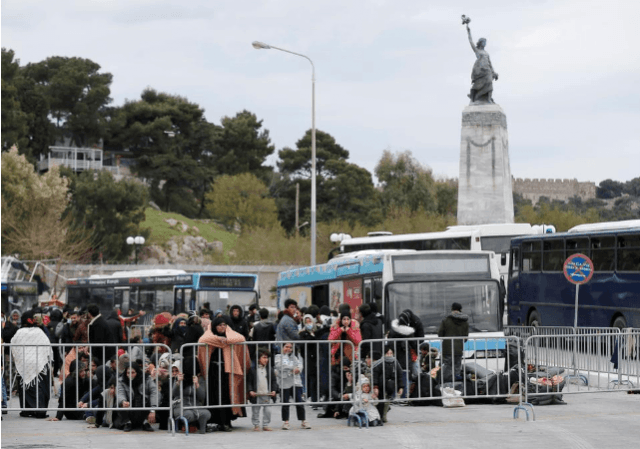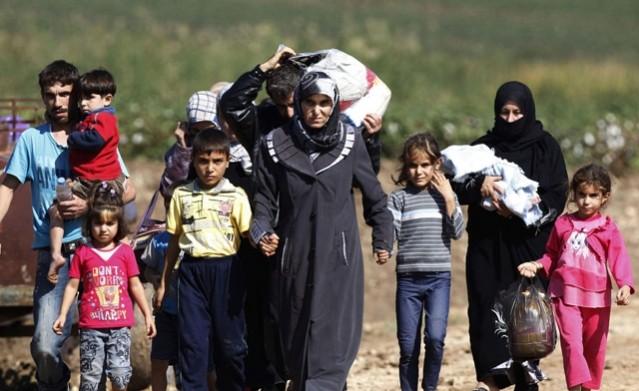Greece will transfer migrants who arrived on its territory illegally after March 1 to the northern city of Serres and plans to deport back to their own countries, Greek Migration Minister Notis Mitarachi said late on Wednesday.
Thousands of migrants have made for Greece since Ankara said on Feb. 28 that it would let migrants cross its borders into Europe, despite a commitment to hold them in its territory under a 2016 deal with the European Union.

Hundreds have made it into Greece, many by sea to Lesbos and other Greek islands. Ankara and Athens are accusing each other of using excessive force at its shared borders, where migrants have clashed with security forces in recent days. "Our aim is to return them to their countries," Mitarachi told the Athens News Agency.
Greece announces it won't accept new asylum applications
He also said migrants who entered the country prior to Jan. 1, 2019 and living on the islands would be transferred to the mainland in the coming days. Greece announced on March 1 that it would not accept any new asylum applications for a month following the build-up of migrants at the border. This has triggered criticism from human rights agencies.
Turkey accuses Greek forces of shooting dead one migrant

Turkey accused Greek forces of shooting dead one migrant and wounding five others, a charge strongly denied by Greece, which said Turkish police were using tear gas to help the migrants illegally cross onto its territory. Turkey's change in policy came after 33 Turkish soldiers were killed by Russian-backed Syrian government forces in an airstrike in Syria.
"The situation is calm today. Yesterday we stopped a group of 150 migrants. We will be here as long as is needed," a police official told Reuters.
No dinghies were sighted in the choppy seas off the Greek island of Lesbos on Thursday following several days of arrivals of migrants. Lesbos already hosts more than 20,000 asylum seekers, many of them living in filthy conditions in overcrowded camps















